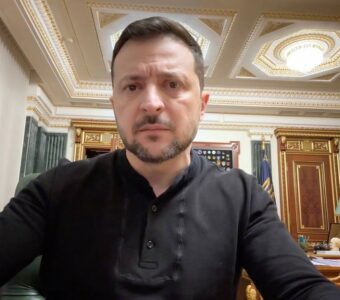Venice Commission criticized CCU decision and recommended returning imprisonment for lying in declarations

The Venice Commission criticized the CCU's decision on anti-corruption reform and proposed to the Verkhovna Rada a solution to the constitutional crisis in Ukraine.
The VC stated this in their published opinion on the urgent request of President Volodymyr Zelenskyi, Liga reports.
The commission stated that the decision of the CCU didn't have clear reasoning, wasn't based on international law, and could be adopted in violation of the procedure, an unresolved conflict of interest of judges. It undermined not only the anti-corruption reform but also the credibility of constitutional justice according to the VC.
Meanwhile, the commission stressed that the fight against corruption was important, but it's also essential that the executive and legislative branches of government implemented the decisions of the CCU, and the court itself followed the procedures and logic of its previous decisions.
The VC believes that the Verkhovna Rada should retain the obligation for officials (including judges and prosecutors) to declare assets and maintain sanctions for intentional deception in declarations. This being said, the parliament should implement the decision of the CCU, interpreting it in the light of the Constitution and international standards.
The VC proposes to the Rada:
- To keep the article on criminal liability for intentional false declaration. Sanctions can be detailed and include imprisonment if the amount of falsely declared assets exceeds a certain threshold
- To restore the NAPC's powers to control officials (except judges), as they are not subject to the decision of the CCU;
- To establish a mechanism for complaints or reports to the relevant judicial body for NAPC to oversee the judges. High Judicial Qualifications Commission (HJQC) can become such a body, but only after resetting and including professional, honest, and independent members in its composition. They may provide another mechanism for supervising CCU judges in the NAPC;
- To reduce the risks of possible NAPC pressure on judges, we can:
- strengthen public control over NAPC under GRECO standards;
- form some NAPC investigative powers in a narrower sense/ introduce procedural exceptions or procedural guarantees for judges.
As reported earlier, on November 25, Volodymyr Zelenskyi asked the Venice Commission to make an urgent assessment of the situation caused by the CCU's decision of October 27 and to provide an opinion on the state of anti-corruption legislation considering this decision.
The Venice Commission responded to Zelenskyi's request: Verification of judges' declarations doesn't contradict international standards.
The Verkhovna Rada proposes to adopt a separate law on the peculiarities of drawing up a protocol for administrative offenses against judges and judges of the Constitutional Court by the NAPC.
To recap, the law draft restoring full-fledged work of NAPC is registered in Rada.
Earlier, the head of the NAPC stated that the president should veto a compromise law on lies in declarations. On December 4, the Verkhovna Rada adopted a compromise law draft 4460-d. It restores criminal liability for intentionally declaring false information and intentionally failing to file a declaration, but doesn't provide for imprisonment for such acts.


















































